We’ve heard all kinds of terrible things about Pashtuns… but are they true? Who are the Pashtuns of Pakistan?
It’s deathly silent. A weak orange sunrise illuminates a pale gray sky over the river. A bloodied knife sits at my feet, a pistol lying ominously next to it. I squat on my heels, straining my eyes as I peer out through a wall of grass, searching for any sign of movement. After a few moments, a faint buzzing noise reaches my ears.
Mechanical clicks of guns raising and firing. Bang! Bang! Bang!
Blood splatters and water splashes as several shapes plummet into the river.
Hoots of delight; our duck hunt is officially a success.
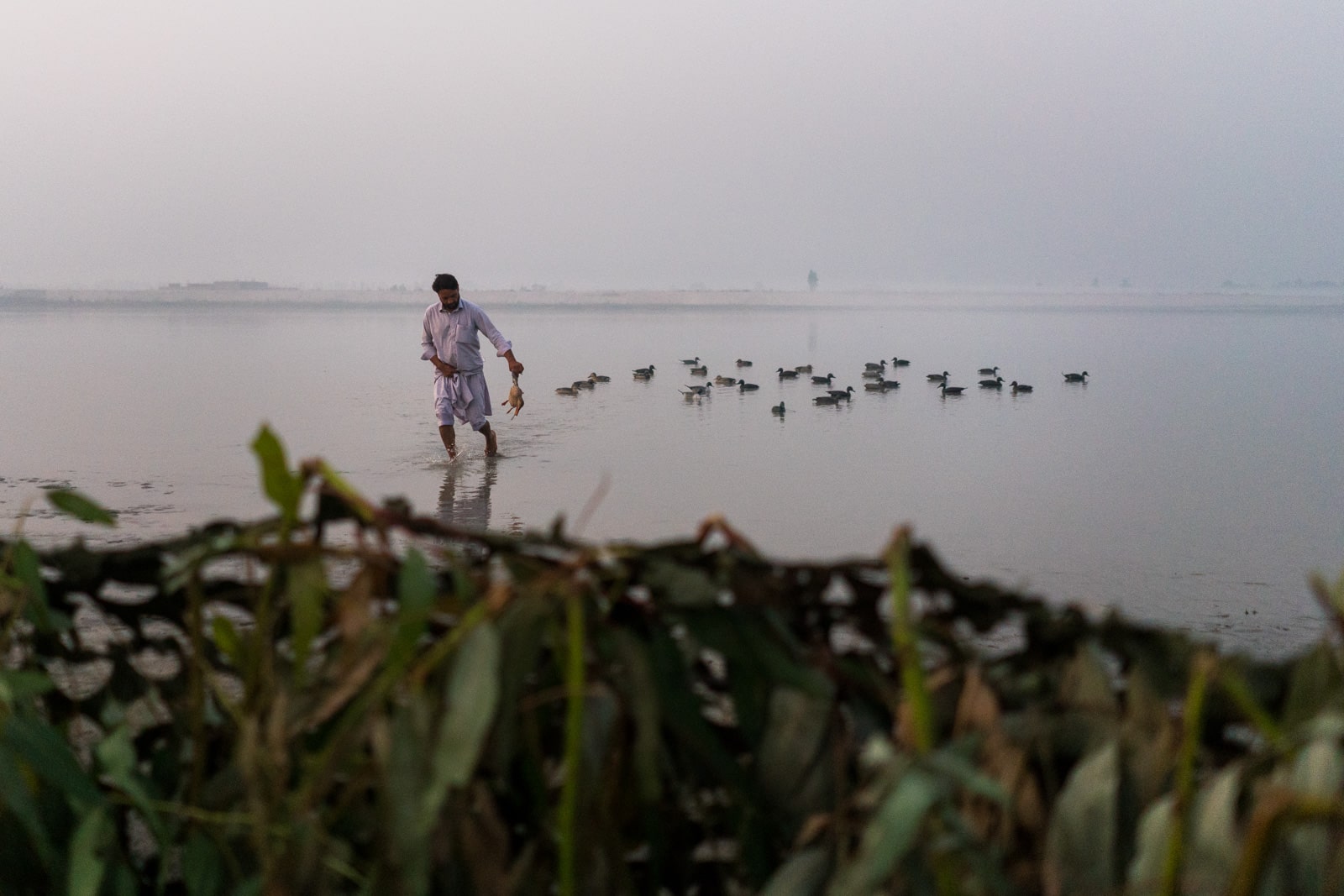
Ducks down!
In excess
Everyone stands up from our grassy hide to peer out over the river. Sebastiaan and I stretch our cramped legs, while our friends stand to count their kills.
Hamza, boisterous duck hunting enthusiast and our Peshawari host, gingerly rests his rifle on some grass before watching his help, Seyar, dash into the water to fish out downed ducks. Siraj, Hamza’s witty cousin and friend, makes a joking comment in Pashto, the local language. Our hunting guide, a man with a chiseled face few would dare to mess with, examines his own rifle with satisfaction before looking out at the river contemplatively.
Sebastiaan and I can’t help but note how this scene is everything our governments and other Pakistanis have advised us against. Within arms’ reach are knives, multiple guns, bloodied bodies… and an excess of Pashtuns.
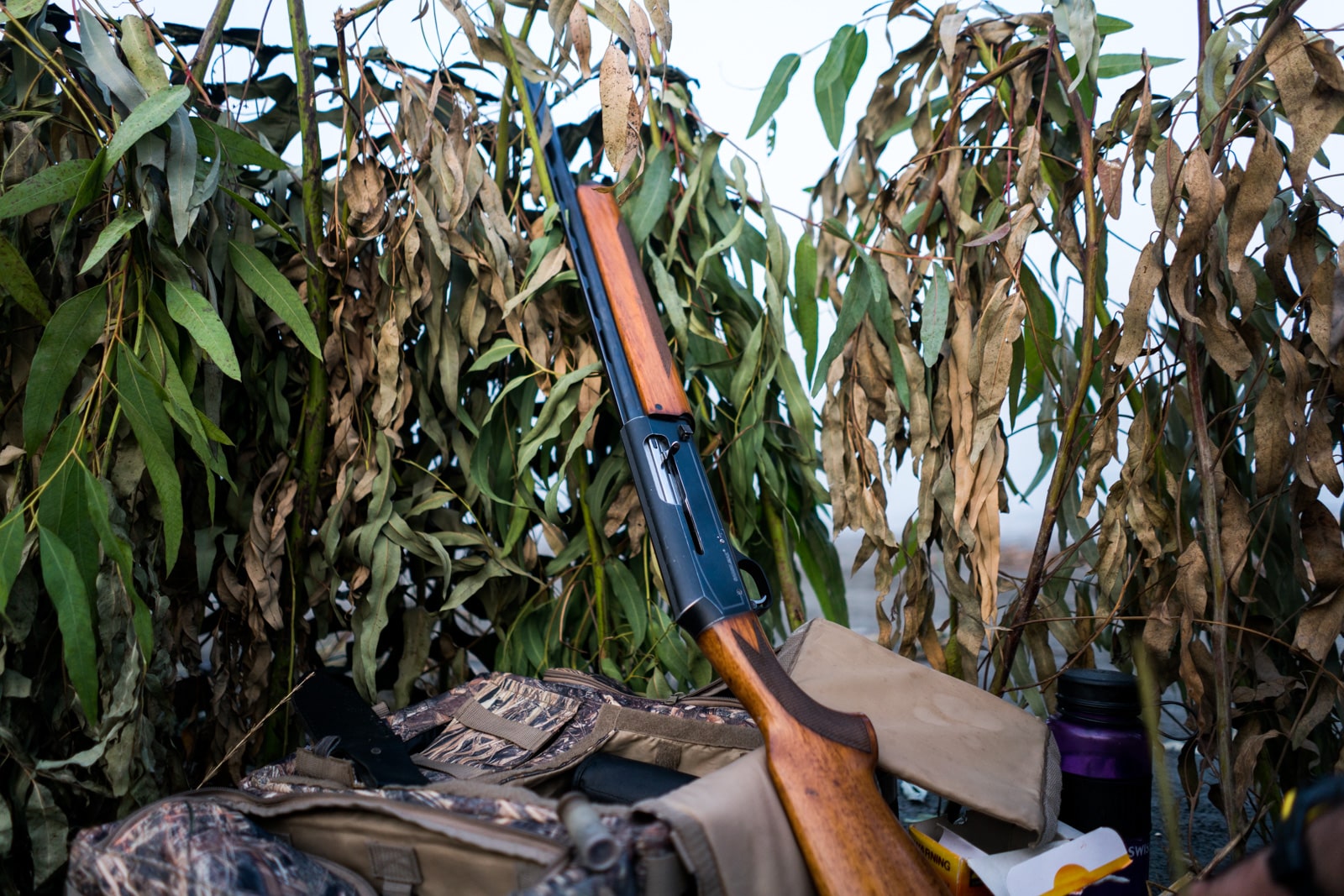
Oh what a beautiful morning ~
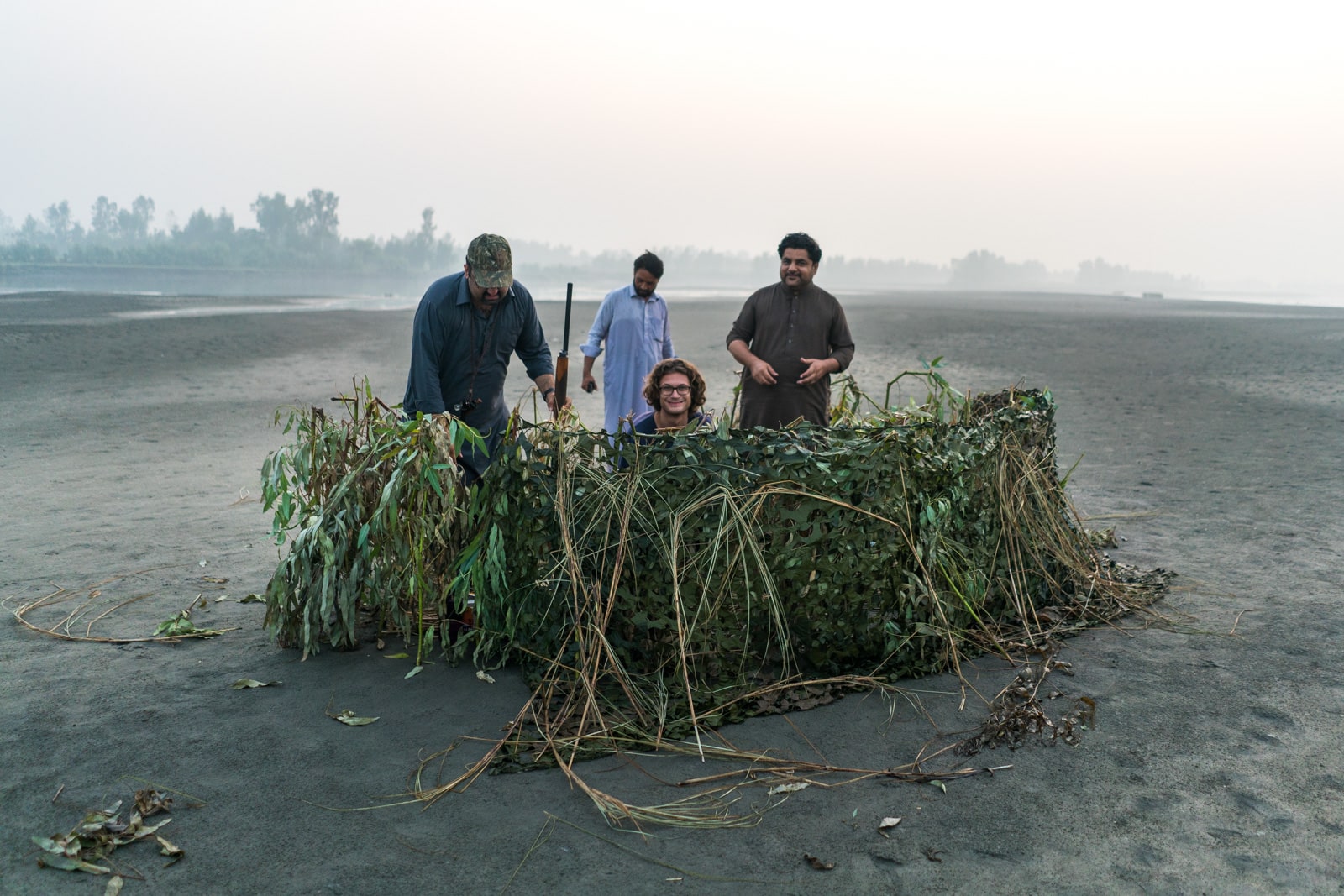
Our hideout for the morning
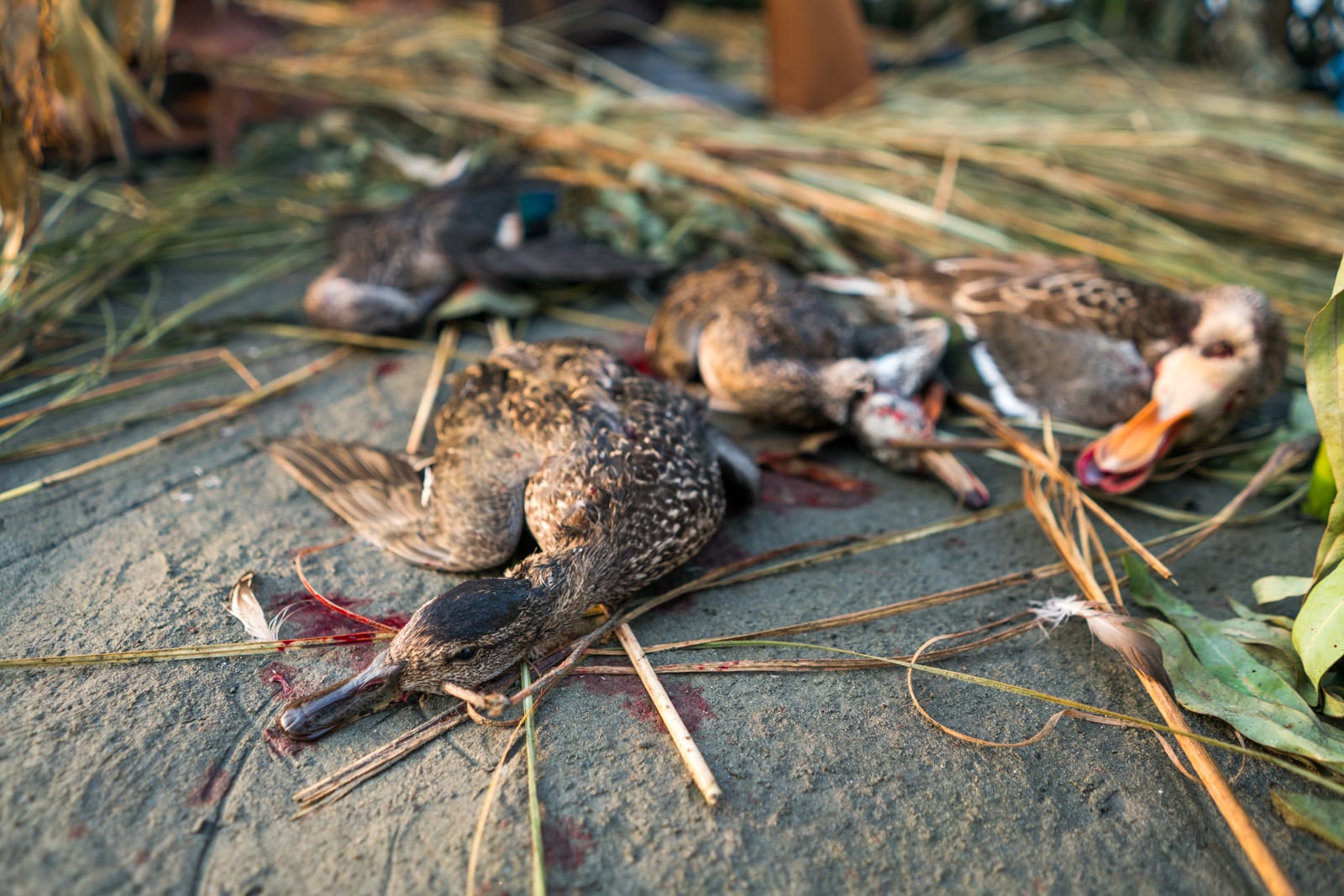
RIP ducks
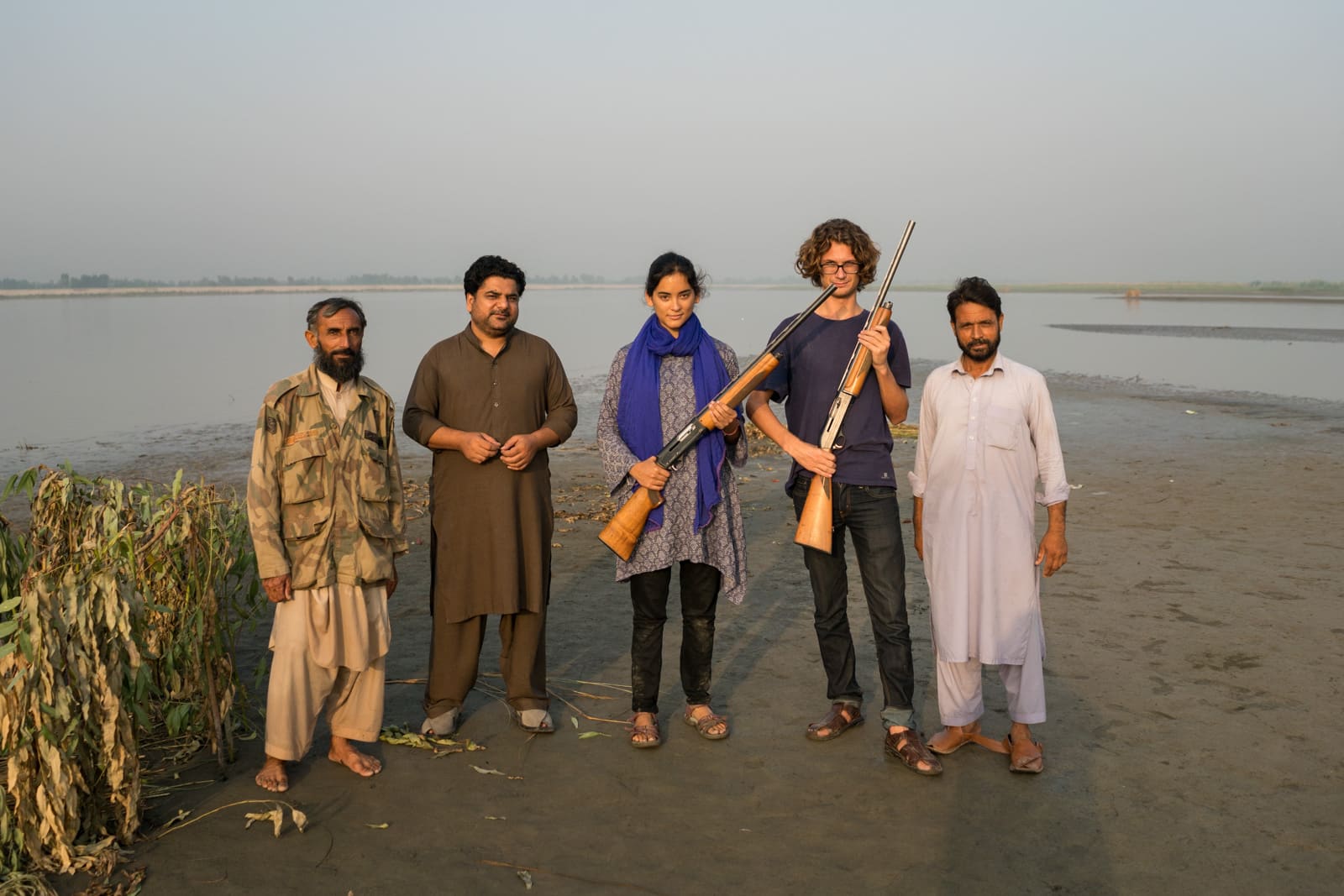
Squad goals reached
Who are the Pashtuns?
But wait… who or what are Pashtuns?
For those not in the know, Pashtuns—also known as “Pathans” and “Pakhtuns”—are an ethnic group of people found throughout Afghanistan and Pakistan.
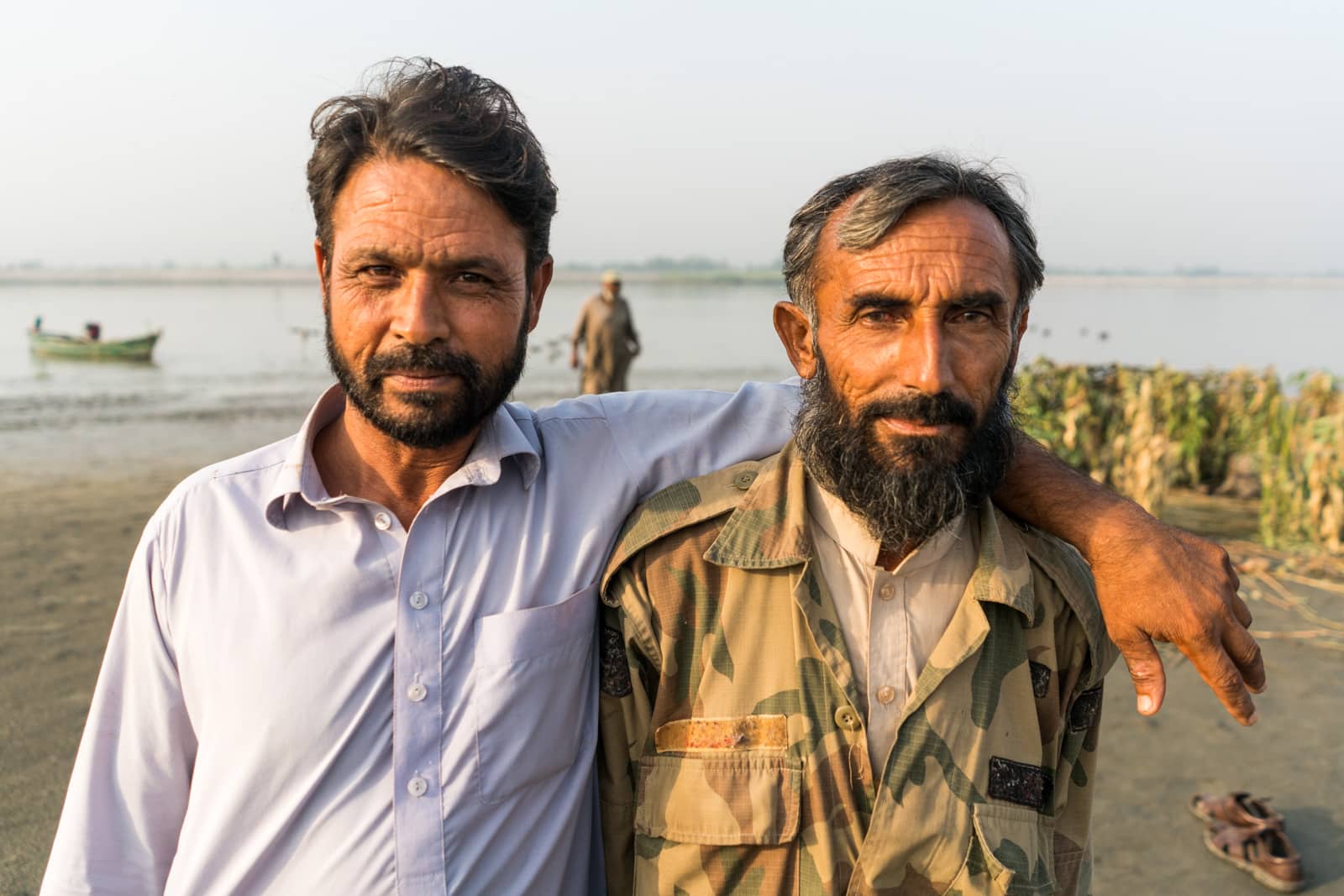
Historians have debated Pashtuns’ origins for ages. Some say they’re a lost Jewish tribe. Others think they’re descendants of Alexander the Great’s men. Many historians believe Pashtuns to be ethnically Iranian. What is known for sure is that Pashtuns have been living in the areas now known as Afghanistan and the Khyber Pakhtunkhwa province of Pakistan for centuries.
Bad boys
We met some Pashtuns during our time in Afghanistan, but our recent adventures through Khyber Pakhtunkhwa province were our first deep encounter with Pashtun culture. Aside from a couple of naughty words of Pashto learned from a friend in Kabul, our knowledge of Pashtuns was mostly limited to a variety of… less than positive stereotypes perpetuated by Pakistanis. Some charming examples include:
- All Pashtun men like to molest young boys.
- Pashtuns are uncivilized, uneducated tribal people from backwards villages who can’t handle themselves in modern society.
- Pashtuns are violent, gun-loving terrorists at the root of all problems in Pakistan and Afghanistan.
Obviously these stereotypes couldn’t be entirely true… could they?
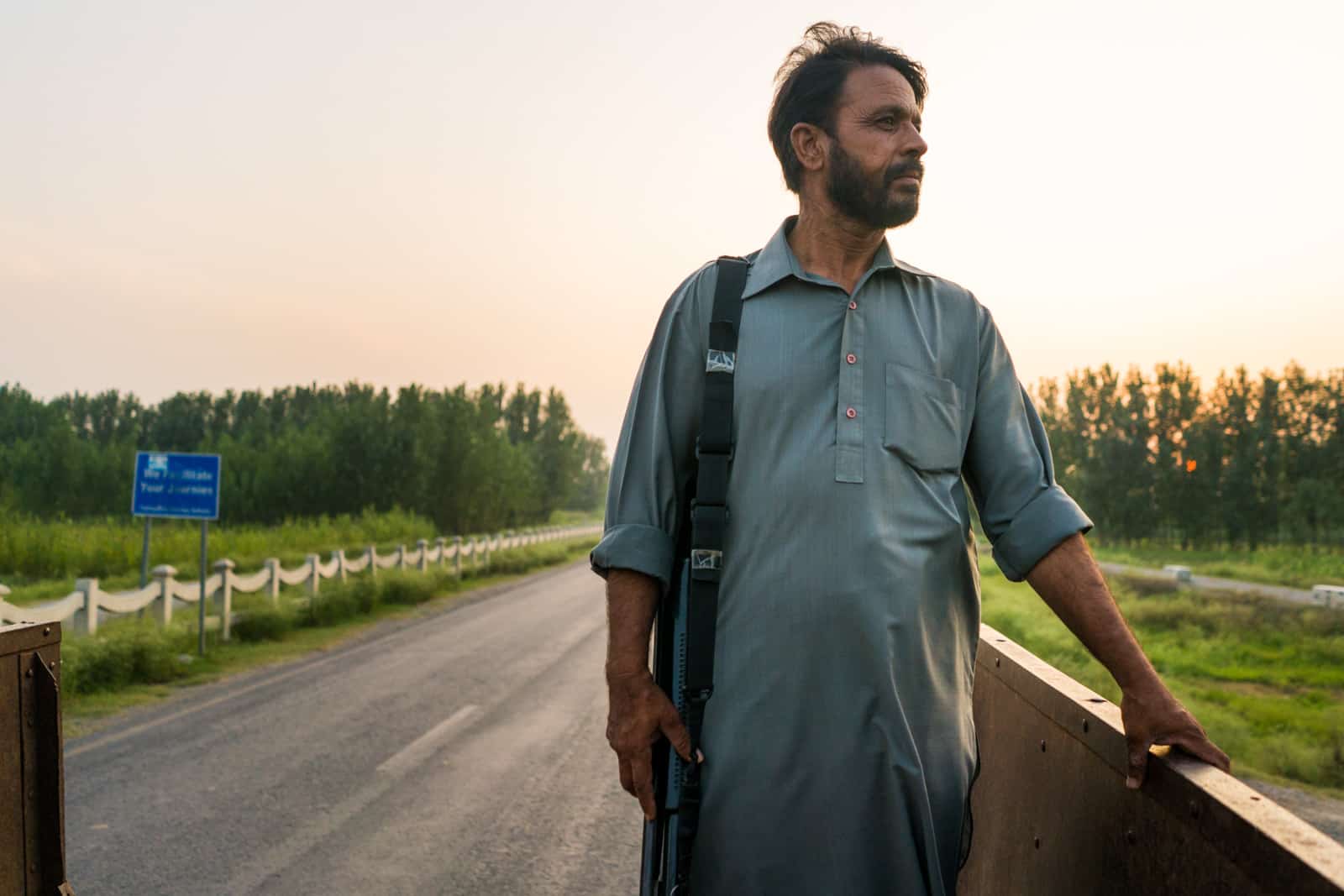
Riding deep with protection in tow
Truths and lies
We admit that stereotypes are often founded upon some sort of truth. Throughout our days with Hamza and Siraj—and other adventures in Khyber Pakhtunkhwa (KPK) province—the truths and falsehoods of the stereotypes gradually revealed themselves to us.
The notion that all Pashtun men like to molest young boys is, of course, false, though Hamza and Siraj were all too delighted to make endless quips about Bannu, a town in KPK infamous for older men having young dancing boys as partners. “They say when crows fly over Bannu, they keep one wing over their bum,” Siraj joked in the car one day as Hamza giggled at the wheel.
The stereotype about Pashtuns not meshing well with “modern” values rang more true… in ways. Though I hesitate to deem anything “backwards”, we learned Pashtuns are indeed quite conservative compared to others in Pakistan, though not for the reasons we expected.
Pashtun values, known as Pashtunwali, are very defined and strongly upheld. Honor and respect are essential pillars of Pashtunwali, and dictate much of their custom. For example, according to tradition, women are encouraged to hide from prying eyes under burqas and behind doors not because they are forgotten, but because they are highly respected, and must be protected from men.
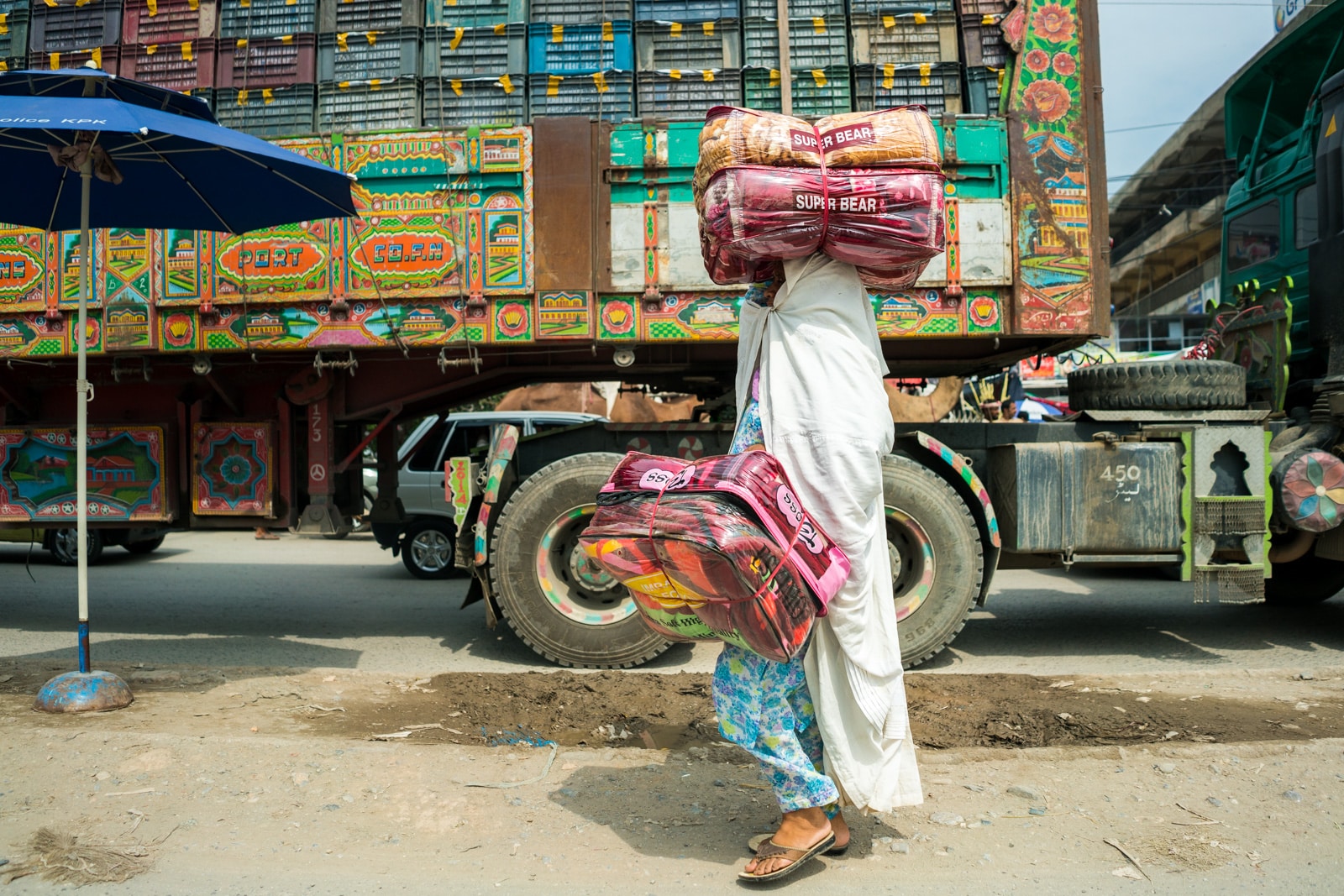
A Pashtun woman in chador in Peshawar
Above all else, however, it is the Pashtun love for guns that rang the most true. Everything from pocket-sized pistols to heavy machine guns paraded before our eyes at some point or another while in KPK. The majority of men we met carried at least one gun, concealed or not, and all knew their way around a firearm. Hamza had a collection of 17 guns, some of which were touted around by Siar whenever we went out and about. Siraj and Hamza entertained us many an evening with stories about their days fixing phone towers for a telecom company; the most common causes of tower outages in KPK, they said with grins, were stray bullets severing the tower’s wiring.
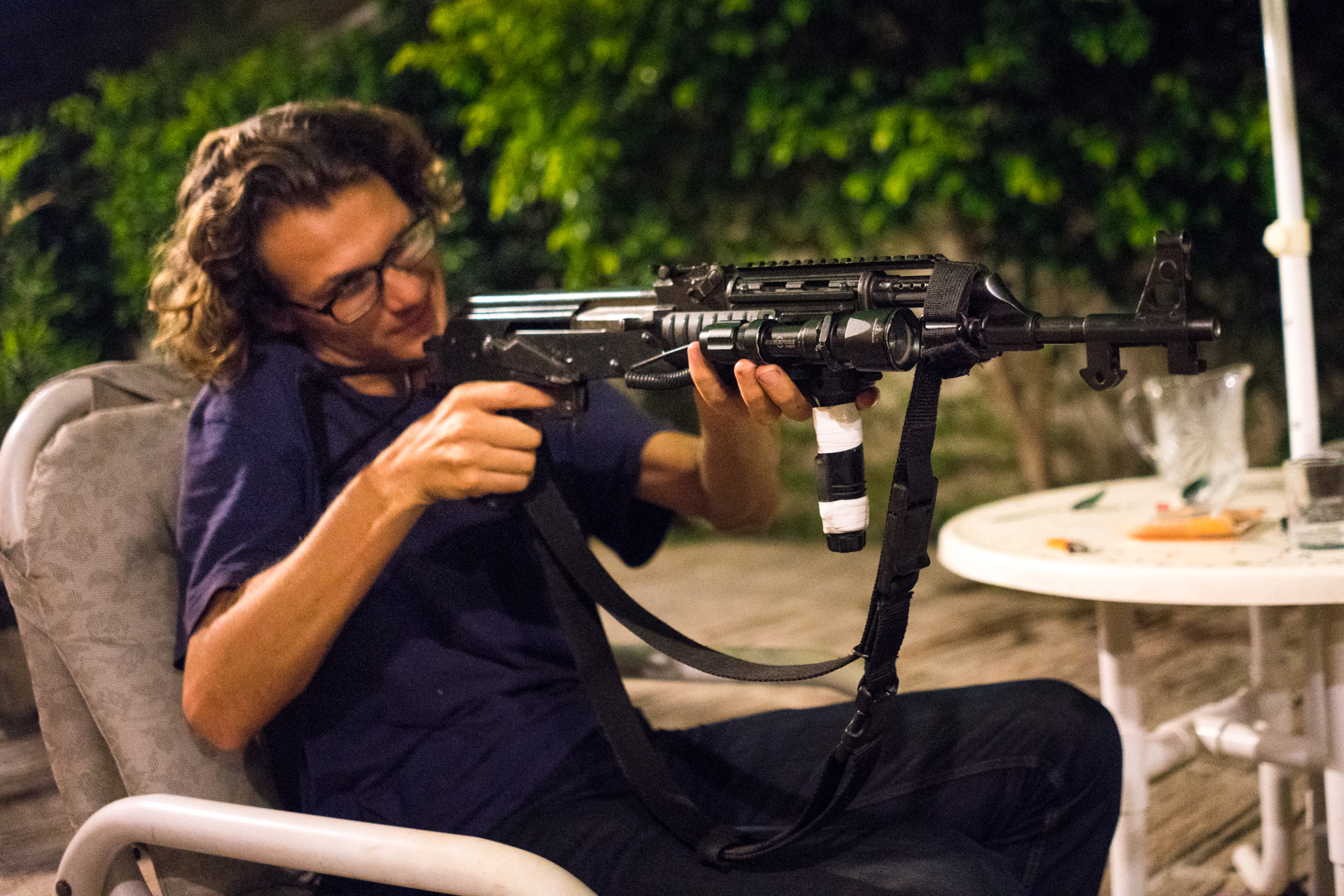
Checking out a piece of the collection
What people won’t tell you about Pashtuns
Boys, burqas, and bullets… I presume this is the point where you’re scratching your head. So is there anything good about Pashtuns?
Hold your horses—there’s one last Pashtun stereotype I have yet to address. It isn’t as widespread as the others; it’s something we’d heard only from other Pashtuns, or travelers who visited Peshawar.
They told us Pashtun hospitality is unrivalled, even within Pakistan. Of all the stereotypes, both positive and negative, I think this holds the most truth. Showing hospitality to guests is another essential piece of Pashtunwali, and we saw nothing to convince us otherwise.
During our time in Mardan and Peshawar, we experienced hospitality on a level above and beyond anything else we’ve experienced in Pakistan so far. We’ve been saying that Pakistanis are some of the most hospitable people on earth, and we’ve recently extended our statement: Pakistanis are the most hospitable people, and Pashtuns are the most hospitable of the Pakistanis.
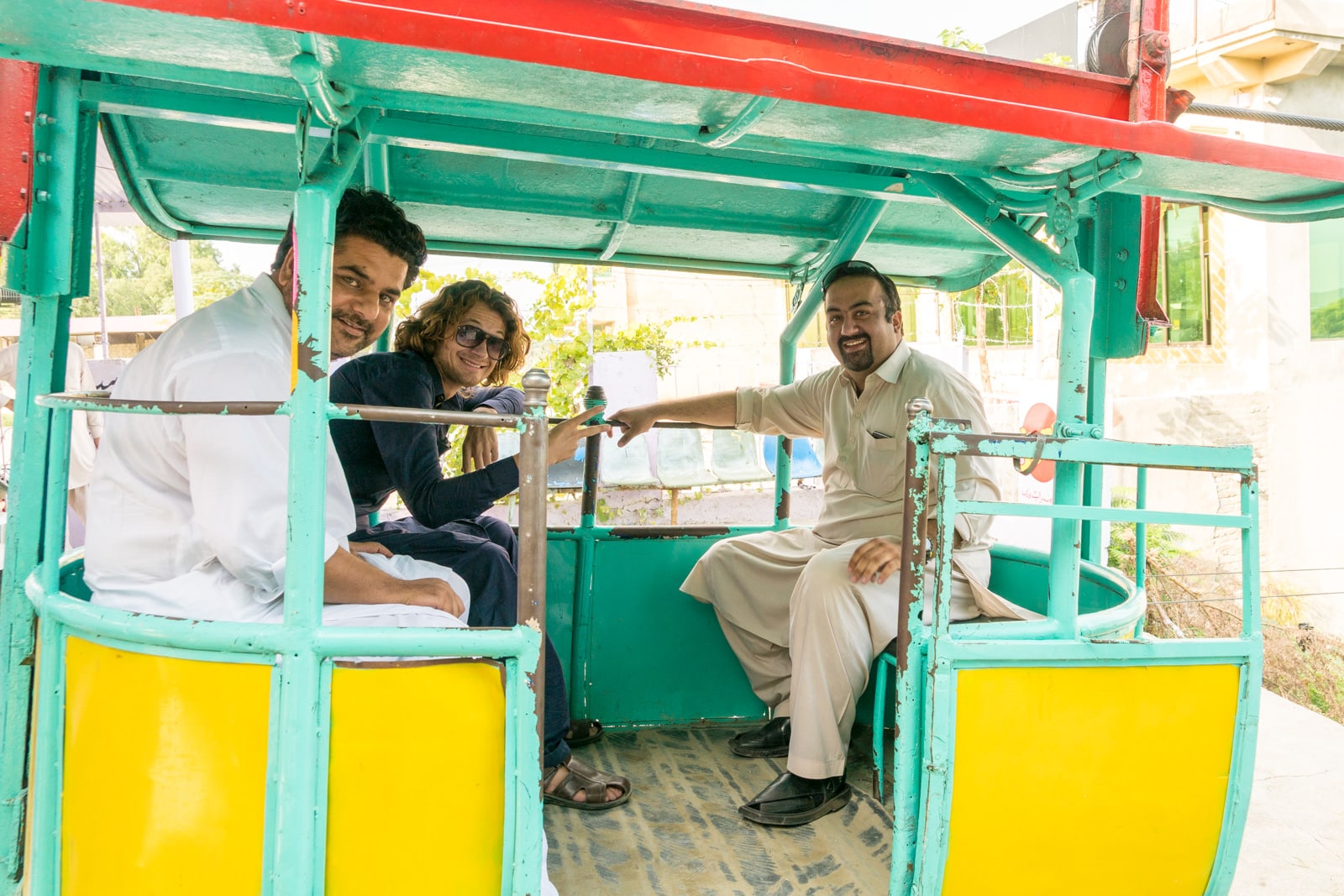
Getting silly with Siraj and Hamza on a concerningly rickety cable car across the Kabul river…
The most hospitable people in Pakistan
In and around Peshawar, together with Hamza and Siraj we explored ancient Buddhist ruins, admired delicate old havelis, and learned to shoot on the banks of the Kabul River. We canvassed half of Peshawar in Hamza’s car as he rattled off facts about every other building we drove past, in between explaining the intricacies of Pashtun culture to us. Siraj kept us cackling as we stayed up late into the nights, playing Ludo and chilling under the stars. Every kind of kebab under the sun landed on our plates at some point—Peshawar is a land of passionate carnivores—and Hamza made sure there was never a single moment where we went hungry, much to my gluttonous delight.
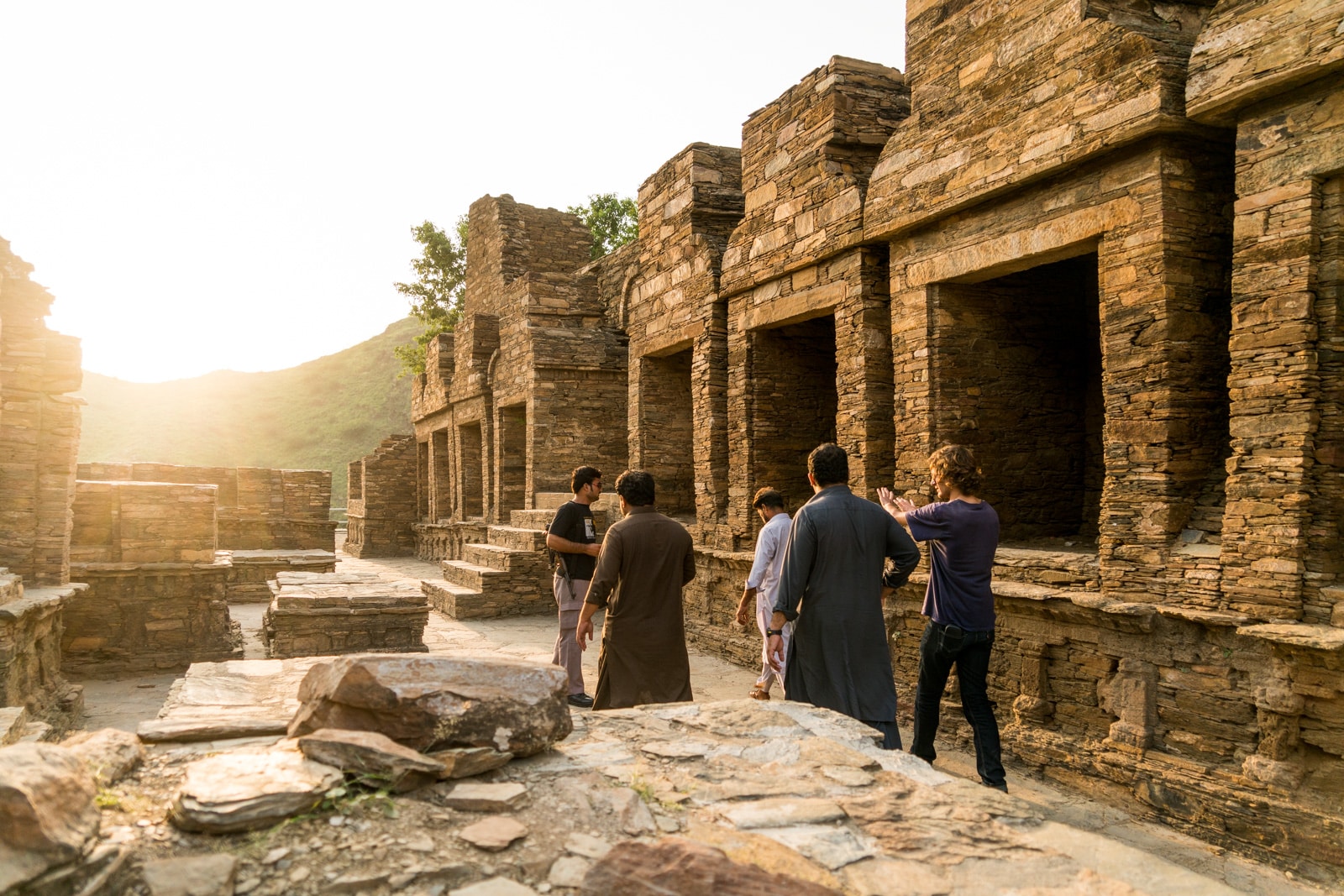
Exploring the Takht-i-Bahi ruins outside of Mardan
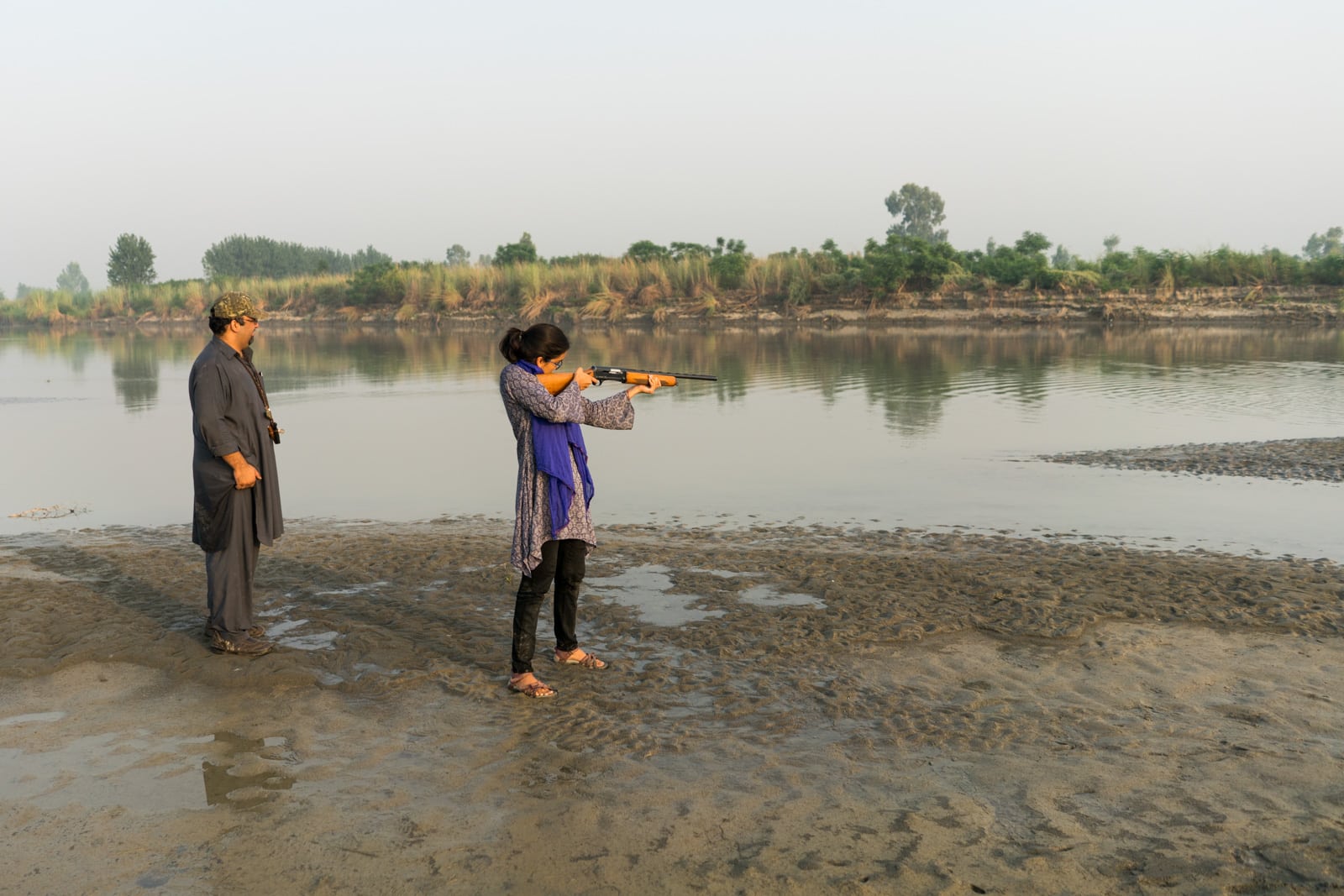
Hamza giving me pointers on shooting. Not that I need them, of course.
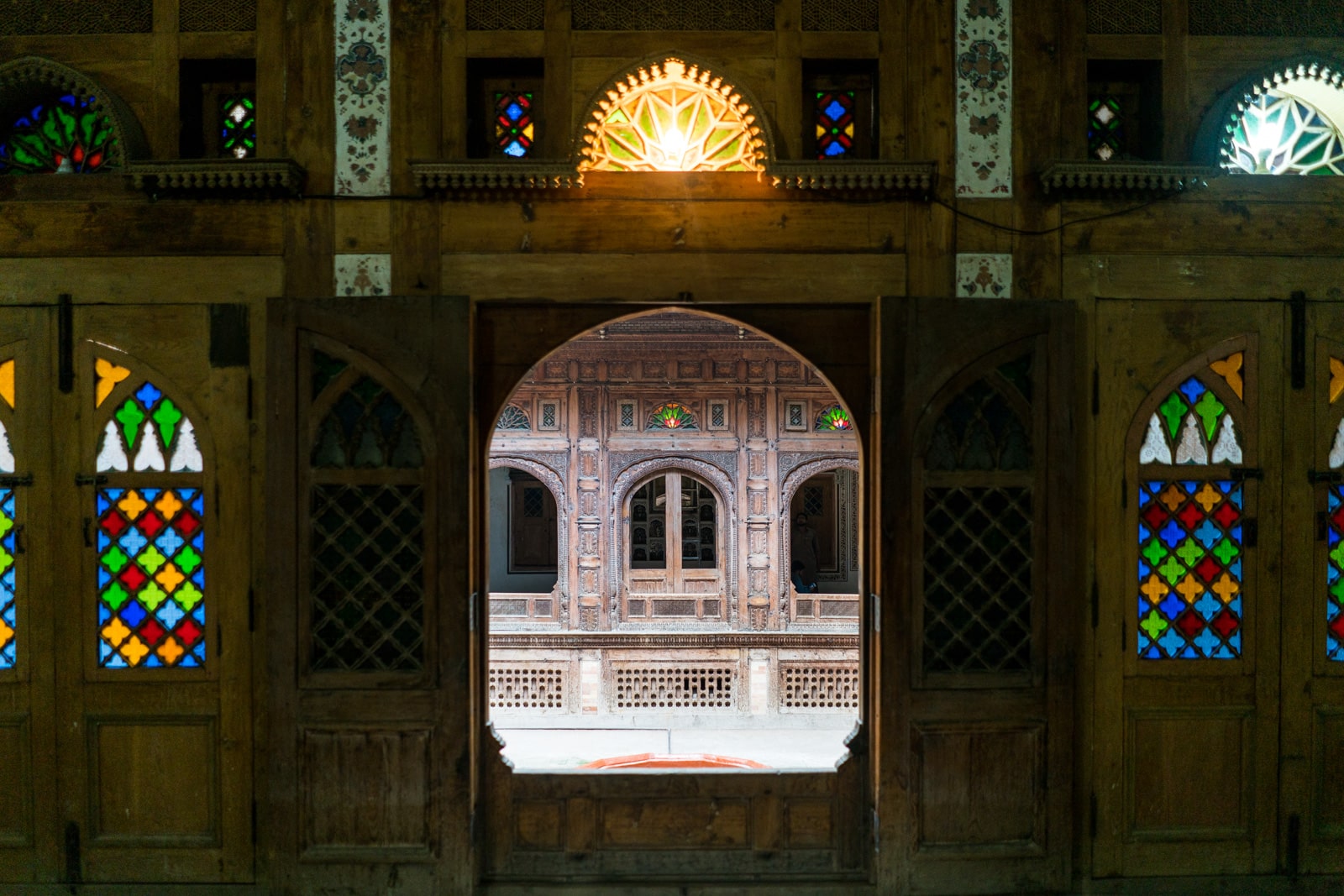
The Sethi House haveli in the heart of Peshawar
Knowing the difficulties of experiencing village life as foreigners, Hamza arranged for us to spend an afternoon in the village areas around Mardan. His brother, Harun, walked us through their fields and showed us how they make gur, a kind of local jaggery. The family farmhand laid out a feast of an afternoon tea, and drove us around the area in his massive tractor, much to the amusement (and confusion) of the other villagers.
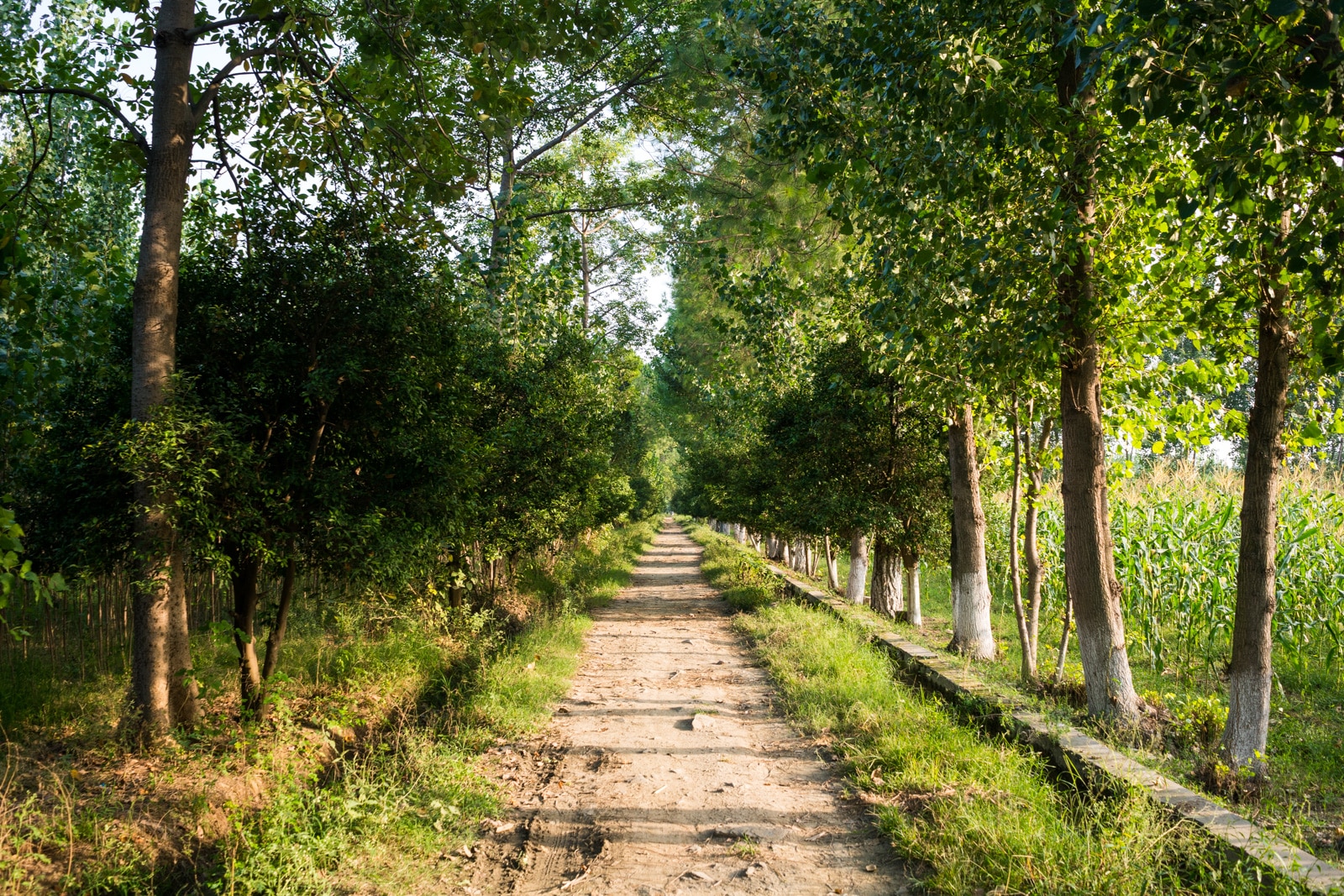
Nothing like a bit of peace and quiet after the chaos of Pakistan’s cities!
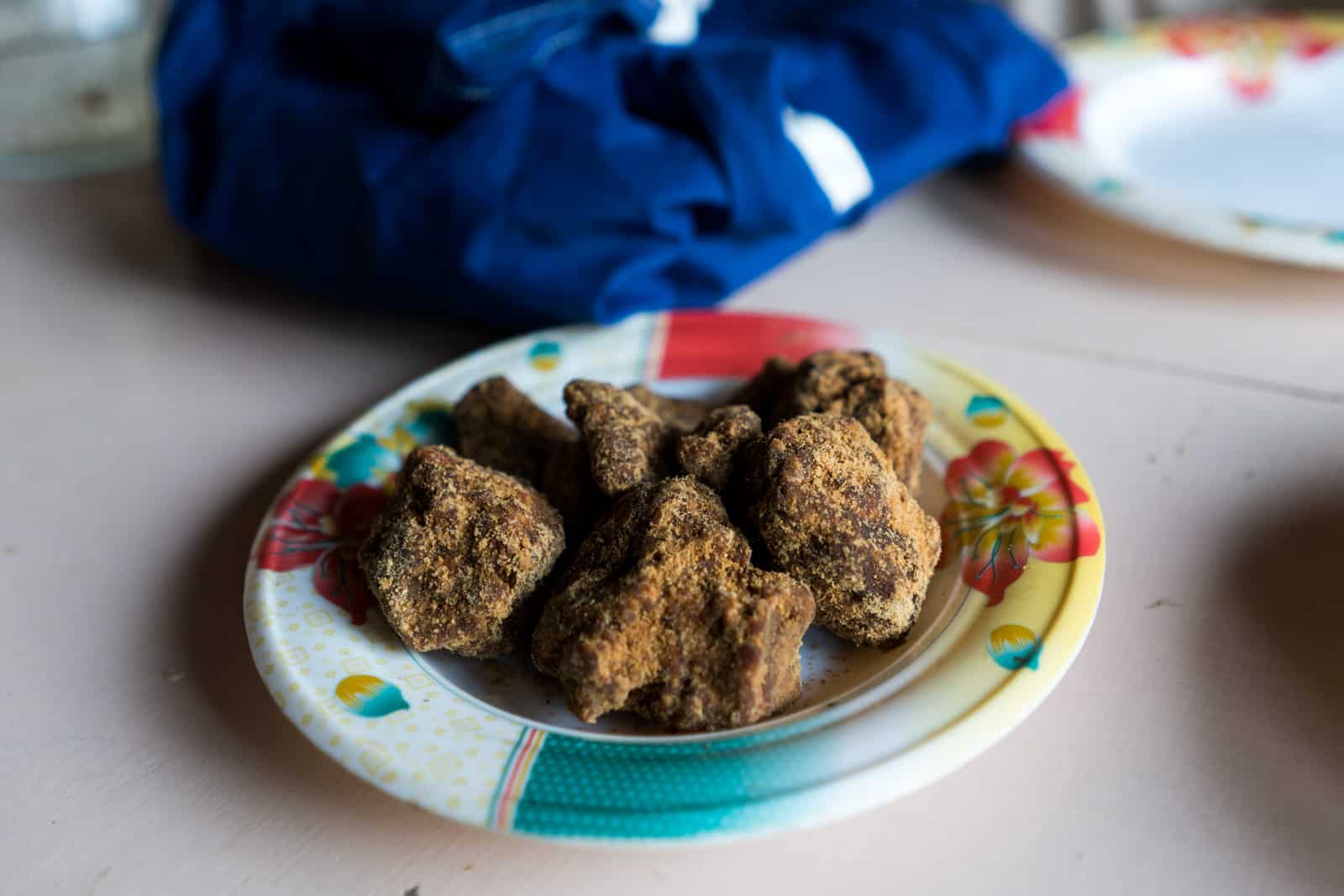
Homemade gur
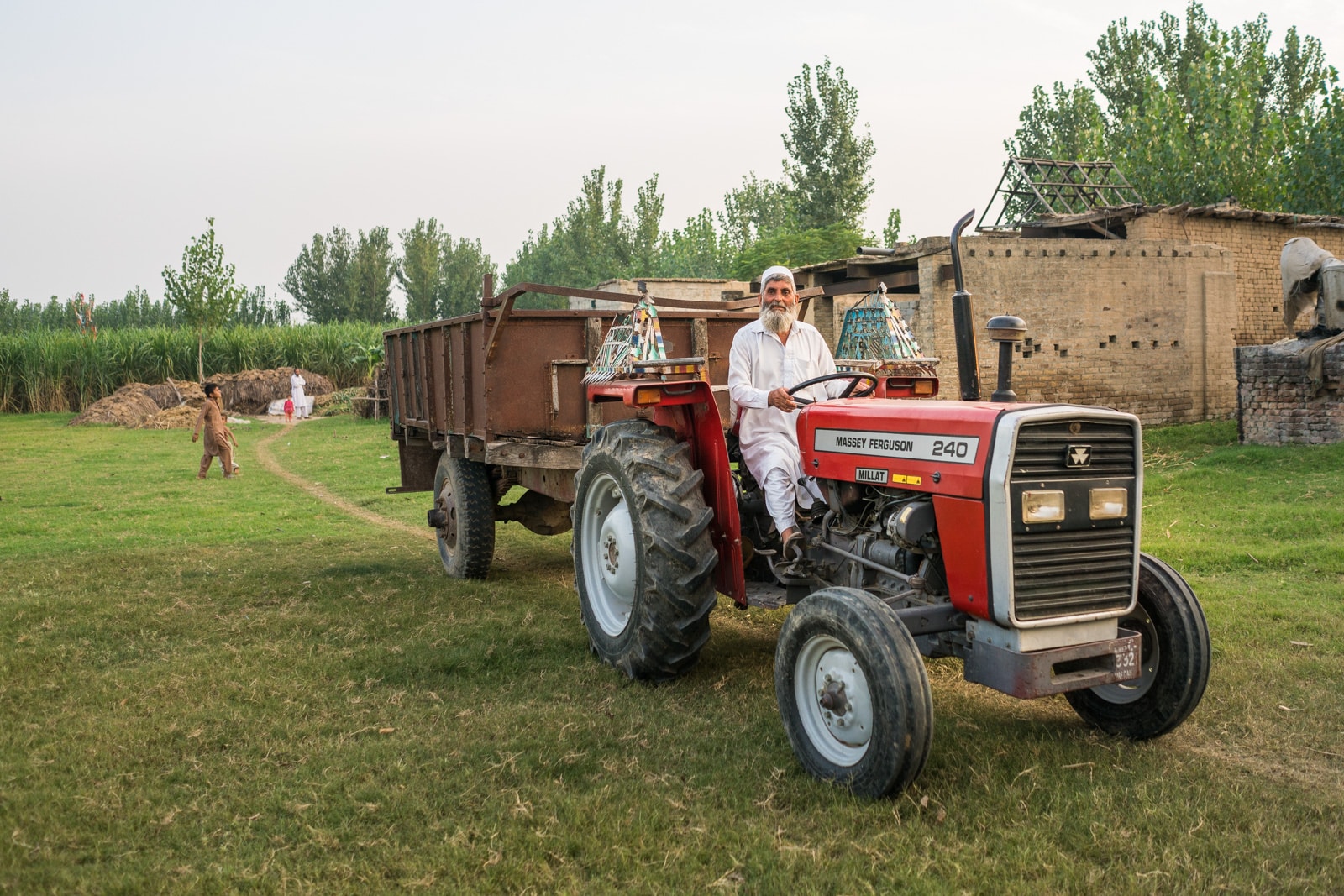
Tractor time!
Late another evening, upon learning it was Sebastiaan’s birthday, Hamza disappeared, returning half an hour later with a birthday cake, an explosively glittery confetti bomb (the only bomb blast we saw in the area), and variety of other gifts. A miraculous accomplishment given the late hour of the night.
Though we’ve since left Mardan and Peshawar, Hamza and Siraj still keep in contact with us. They’ve found us friends and hosts in other cities, argued over the phone at army soldiers hassling us on the road, and loaded us up with advice on places we’d never even heard of. We’re separated by thousands of kilometers at this point, and still they manage to take care of us and keep us laughing, all at the same time.
Inevitable exceptions
In Pakistan, there are more than 200 million people. The world’s population is rapidly approaching 8 billion. With so many people in the world, its inevitable that some will fit whatever stereotypes we create and subscribe to. What we need to remember is that there are plenty of people who don’t fit the bill.
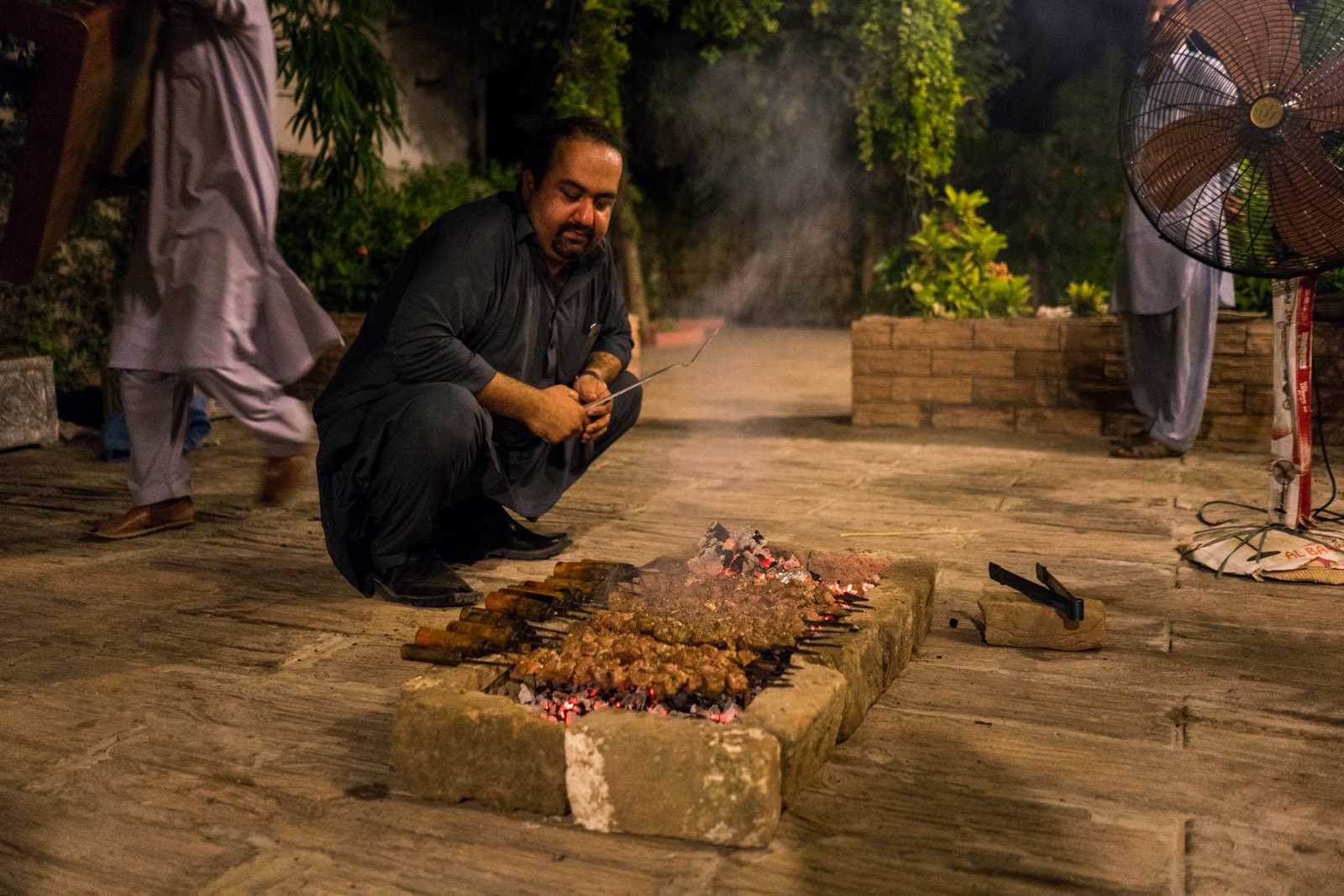
Grillmaster Hamza doing what he does best
Hamza and Siraj are the complete opposites of the backwards, uneducated, violent Pashtun cliché. Both are highly educated, as revealed by flawless English and thoughtful explanations. They were patient with all of our questions and needs, and respectful of our own cultures while teaching us about theirs. Sure, they had guns, but they were incredibly cautious with them in our presence, and handled them with care. The stereotype best suited to them was that of utmost hospitality.
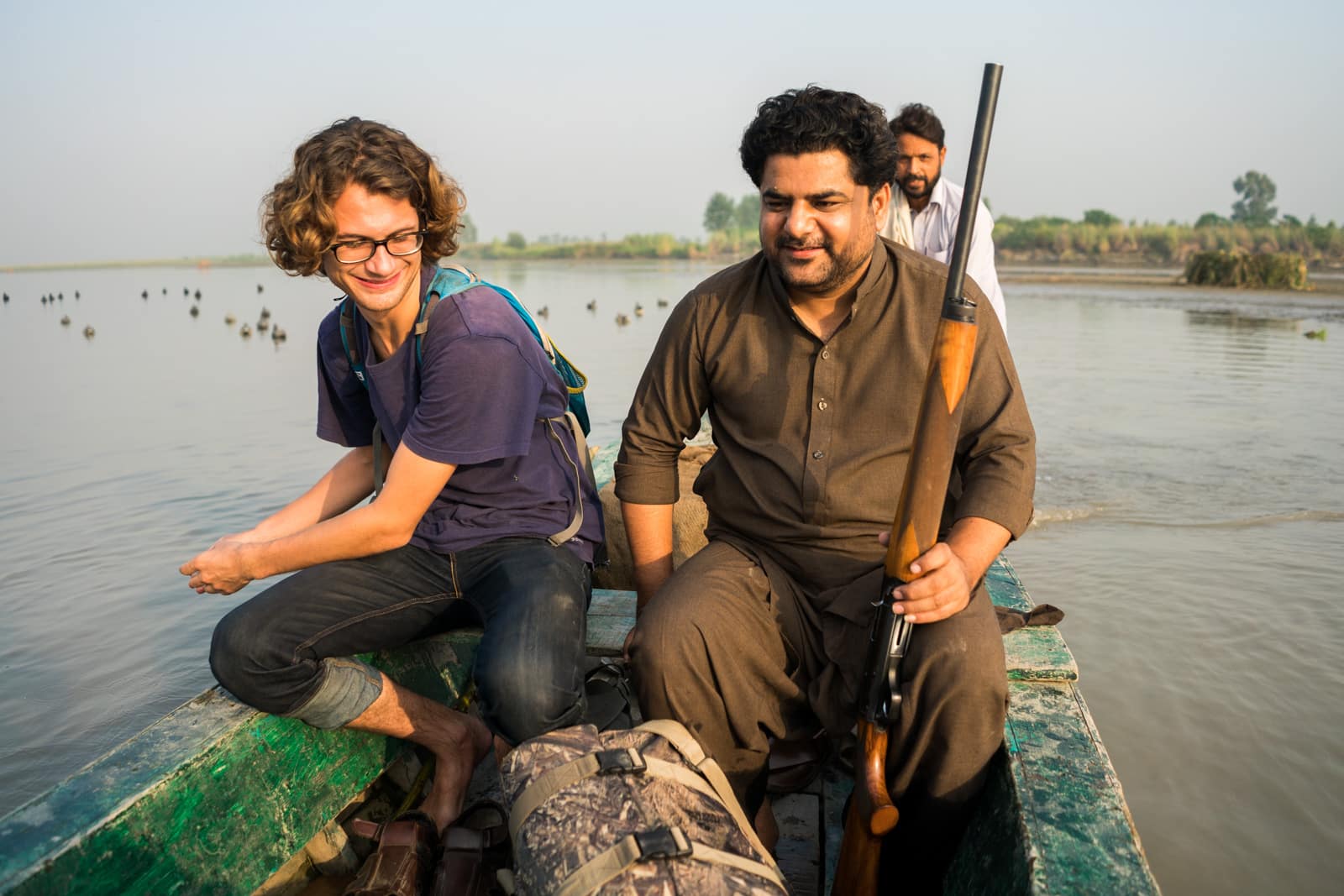
Pretty sure Siraj doesn’t look like a paedophilic terrorist… Just sayin’
When two different worlds come together, it is tolerance that helps them stay together, and learn from rather than fight each other. During our time in Peshawar and Mardan, we learned of many stark differences between Hamza and Siraj’s Pashtun culture, and the Western amalgamation Sebastiaan and I represent. For example, we found it extreme that Pashtuns sometimes kill the man and woman when they are caught having an affair. Hamza found it extreme when we explained how in many places in Europe and the US, men and women can sleep around with as many people as they want before marriage. But rather than judge each other and fixate on the differences in our cultures, we all simply used our differences as a learning experience, and carried on together. No hotheaded shouting or gunfire necessary.
If we allow negative stereotypes to get in the way of meeting new people and visiting new places, worlds of opportunities will be missed. To fully experience something new, forget stereotypes and prior notions. Aim to learn firsthand, not through hearsay, and like us, you might end up blown away by what you find.
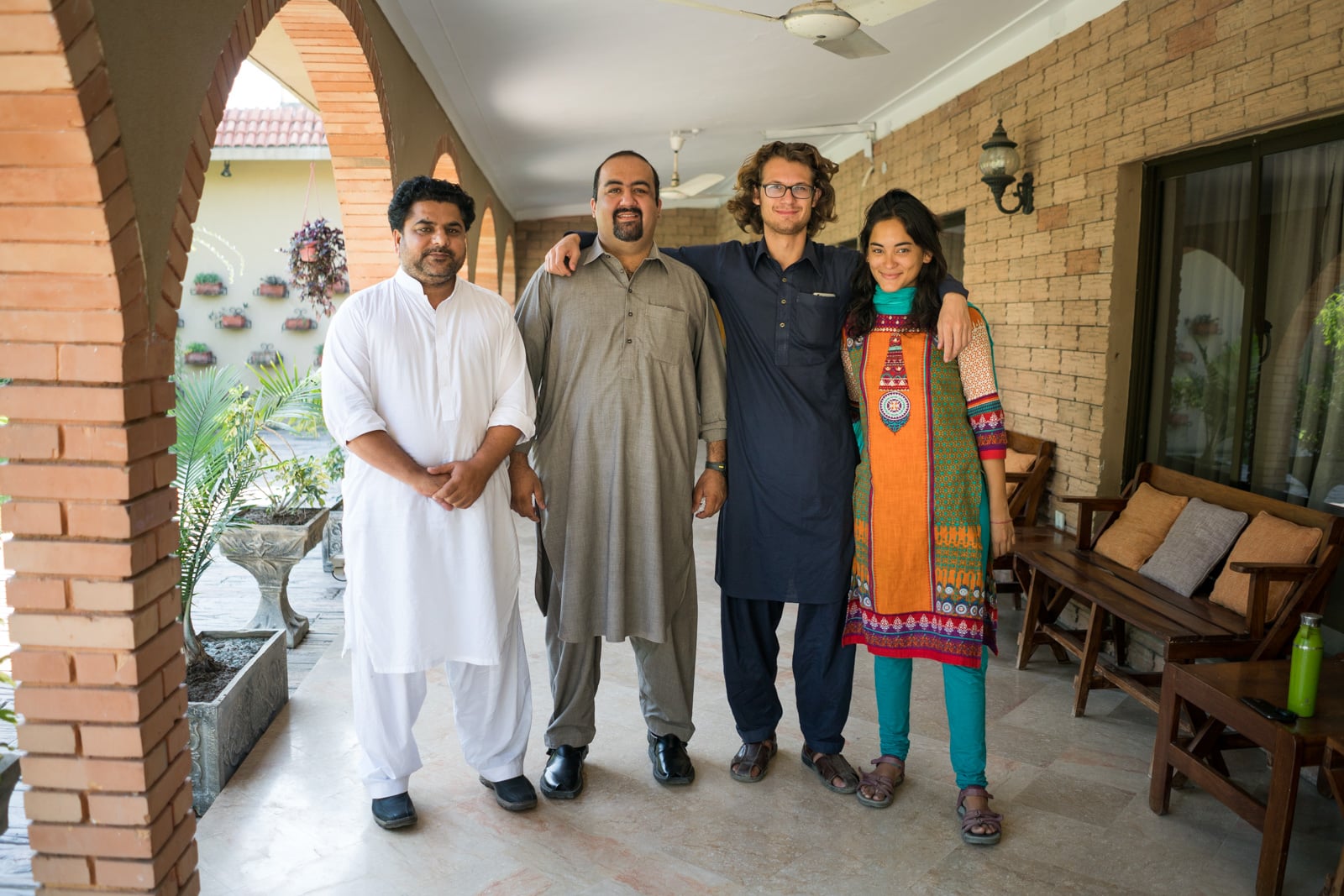
One last group photo with the most hospitable people in Pakistan
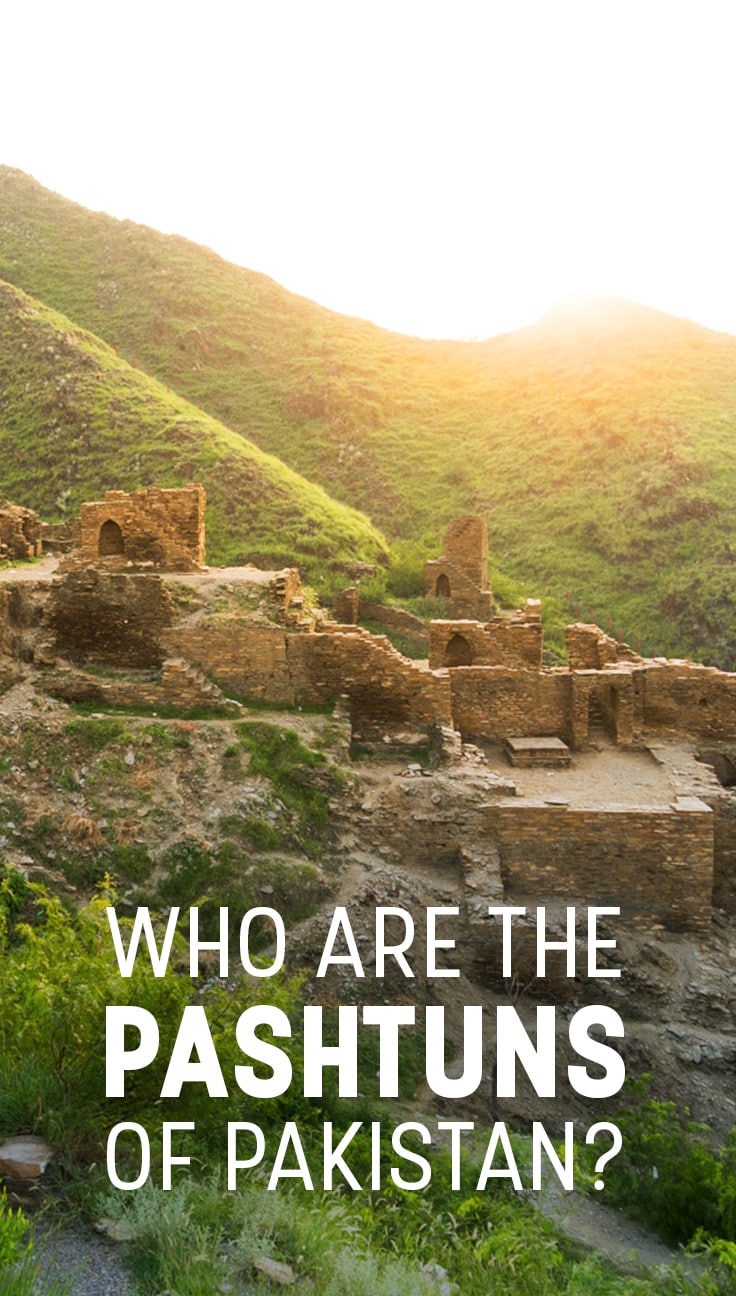
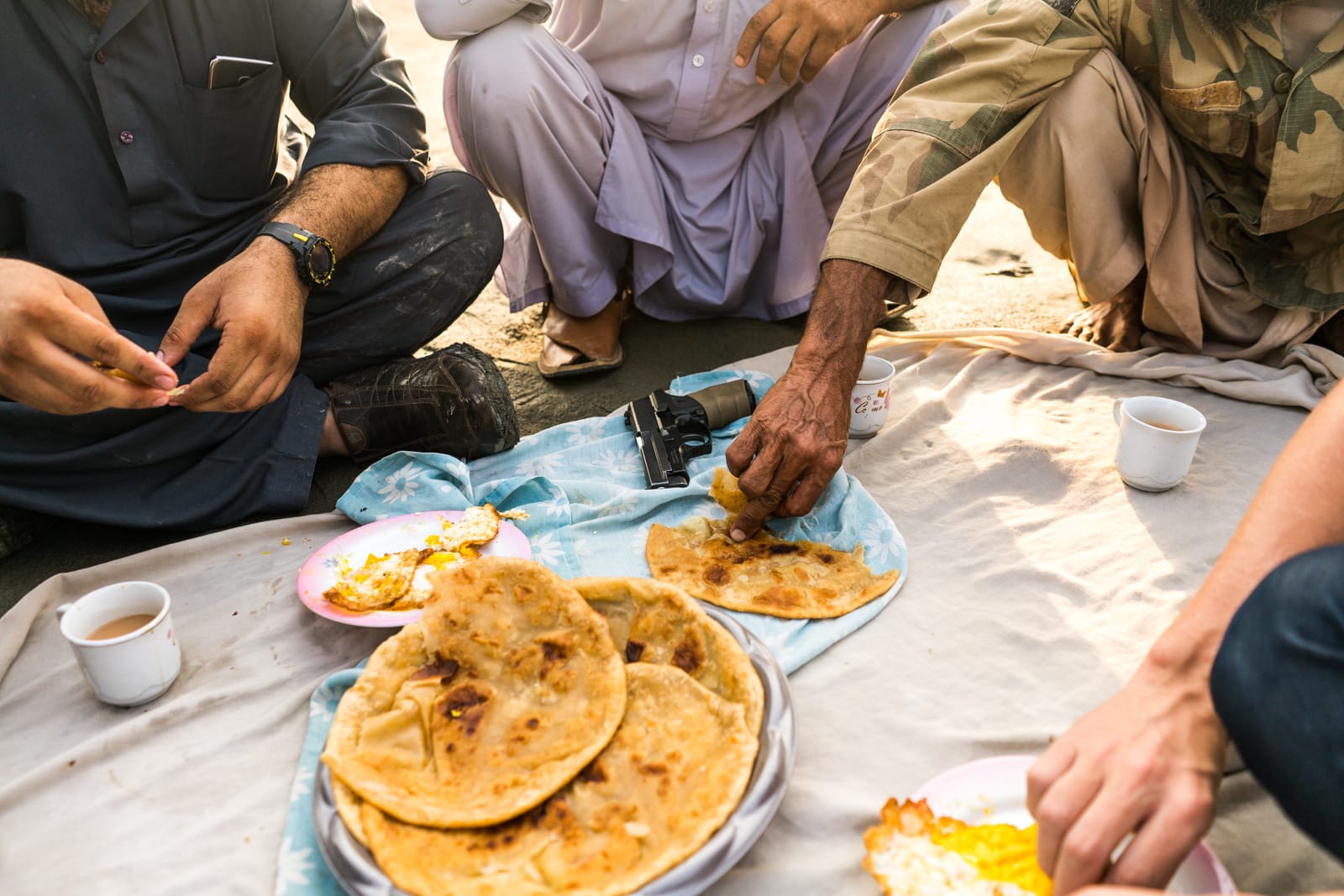


You’re so lucky to be able to experience firsthand the hospitality of the Pashtuns for these people, as you said, are often portrayed in a very negative way. I know we’re too often easy to judge people based on our values. But trying to understand others’ perspectives requires greater effort, although through people like you we know that it is also very rewarding in the end.
We’re very lucky indeed. The hospitality we’ve been shown is unrivaled. And you’re right, it is too easy to judge people without actually knowing them. Hopefully more people will realize this, so we an grow to a greater understanding together.
I have never had bad experiences with Pathan people, and I’ve met and known a lot of them. That’s not to say that there are no bad apples among them, but far from the masses of primitive folk that the stereotype suggests. I can’t wait to visit Peshawar myself soon! 😀
I have enjoyed your articles on various cultures especially Pakistan but seem to note the headline and intros are getting too click bait(ish!). Perhaps, since you’re trying to break stereotypes, but it just seems a little over done.
Hope you keep visiting, discovering and sharing Pakistan.
Hi Alex you make it sound like being gay is a “less than positive stereotype”. You may want to consider re phrasing that part of your article. I truly hope this is not what you intend to say!
Apologies! You’re right, that’s not what I intended to imply at all (there should only be love for LGBTQ+). I have reworded the statement, and I hope it is better phrased now—pedophilia is the negative notion I wanted to stress.
But it still shows – “a less than positive stereotype” is that “All Pashtun men are gay”?
Ah, I’d updated another bit previously and overlooked that part. My bad! I’ve also changed the wording of that statement. If there are other remaining issues, do give a shout.
Best Alex!
What you wrote about Pashtuns shows how little you know about them,
than just prejudices. Why do you place so much emphasis on the prejudices
you call stereo types, when you can’t handle any of them as fake? You quote and ridicule the Pashtuns by letting your local friends stand for the utterance. The only positive thing about Pashtuns is their hospitality; This is true of most people in Asia, or?
You reproduce that all Pashtuns are “pedophilic homosexuals” – you choose
to use a fake definition. There may be 40 million Pashtuns in Afghanistan and Pakistan. They are divided into large numbers of clans. How many percent of the population are homosexuals there? How do you know how many of them are specific “pedophilic homosexuals”? Scratched talked there are no gay Pashtuns because gay relationships are forbidden in Islamic countries. But even if that was allowed, would everyone be pedophiles too? Strictly speaking all Pashtuns are heterosexual with wife/s and children. Pashtuns who also keep having young boys are just pedophiles and nothing else. When these boys become men with beard growth, they are replaced with boys / children.
There is cultural and historical explanation for that and I recommend you
to read about this horrendous practice that does not involve homosexuality per definition, as little as antiquity Greeks once had.
Good that you have made some changes in your article. Now, when you have all the information you need, why do you still write about “pedophilic homosexuals”? There is no such thing and writing this is not only wrong but also offensive and insulting to many people. I choose to believe that you just forgot editing this.
If I were you, and really wanted to write about this important topic, I would have used the word “child molesters” or talked about “child sexual abuse” or “child molestation”. Alternatively “pedophilia”, but as a psychosexual disorder, using that word might be a bit too clinical.
I write about “pedophilic homosexuals” because that is what it is. If a man engages in any kind of sexual relations with an underage boy, he is, per definition, engaging in pedophilic homosexual relations with the boy. The “homosexual” clarification is necessary because the victims in this case are boys, not girls.
From the Vatican’s extensive history with pedophilia to the practice of dancing boys in Pakistan and Afghanistan (http://www.bbc.com/news/world-south-asia-11217772), pedophilic homosexuality does exist. But, given your rather extensive world travels, I believe you know that already, and are simply choosing to fixate on the language out of concern that it perpetuates the false notion that gays are pedophiles.
I am happy to update my wording to avoid inaccurate connotations, but I disagree that my phrasing is inaccurate in this instance. Choosing to use “child molesters” rather than the current phrasing would result in a loss of meaning, and so I will leave things as they are. You are, of course, welcome to address the topic on your own blog using your preferred wording.
So if a man molest a boy he is a pedophilic homosexual, if a man molest a girl he is a pedophilic heterosexual and if a man molest a boy and a girl he is a pedophilic bisexual?
Yep.
Alex, you seem to be very sure of Pashtun men’s sexual orientation!
“….Another problem related to terminology arises because sexual abuse of male children by adult men2 is often referred to as “homosexual molestation.” The adjective “homosexual” (or “heterosexual” when a man abuses a female child) refers to the victim’s gender in relation to that of the perpetrator. Unfortunately, people sometimes mistakenly interpret it as referring to the perpetrator’s sexual orientation.
As an expert panel of researchers convened by the National Academy of Sciences noted in a 1993 report: “The distinction between homosexual and heterosexual child molesters relies on the premise that male molesters of male victims are homosexual in orientation. Most molesters of boys do not report sexual interest in adult men, however” (National Research Council, 1993, p. 143, citation omitted).
To avoid this confusion, it is preferable to refer to men’s sexual abuse of boys with the more accurate label of male-male molestation. Similarly, it is preferable to refer to men’s abuse of girls as male-female molestation. These labels are more accurate because they describe the sex of the individuals involved but don’t implicitly convey unwarranted assumptions about the perpetrator’s sexual orientation.”
Tarja, I am not claiming to be an expert on the orientation of all Pashtun men—though I’m sure there are homosexuals, heterosexuals, bisexuals, and everything in between, whether they admit it or not. I merely meant to discuss semantics, though some may have construed my words as an attack.
Regardless, your citation was very enlightening (for others’ future reference, you can view the full text from UC Davis here: http://psychology.ucdavis.edu/rainbow/html/facts_molestation.html). My background knowledge of the psychology of pedophiles was limited, and my comments based on my own reasoning. Though my understanding is still limited, the issue of terminology has been somewhat clarified. I will go back and make due edits to the article once more. I hope you are satisfied, and thank you for sharing.
Alex, I am glad to understand that you don’t put similarity between homoxexuality and pedophilia – that difference is not clear to anyone who meets bacha bazi for the first time. I hope this distorted abuse soon will be abolished for good.
All the best and have a good time!
Of course Pashtuns treat a white man in a hospitable way.
You however haven’t experienced the end of their bullet or the way they discriminate other people in their “homeland”. Pashtuns are racist, sexist, pedophilic and terrorists. There’s a saying: “Not all pashtuns are talibans, but all talibans are pashtuns”.
Hateful, uneducated people that spread misinformation. If they are so good how come they bomb other ethnic people’s historical sites? How come they bomb schools, hospitals and mosques?
If they respect women so much, why do they shoot pregnant, bedridden women in the womb?
If they care so much about honor, why don’t they fight with people their own size instead of beheading young girls?
You’re a naive white tourist that has only seen one side of pashtuns. Lucky for you they haven’t seen you as a “problem”.
Not all Pashtuns are Talibans, but all Talibans are Pashtun — even if that were the case, that isn’t justification to condemn an entire ethnicity because of the actions of a few. Travelers like myself and my friend certainly are naive compared to others, but not so naive as to accuse a whole group of people of what you have just claimed there. There’s no doubt we should condemn racism, terrorism, misogyny, and pedophilia, but making broad accusations like that accomplishes nothing but harm.
Hi Alex,
I loved your post about Pashtuns since I’m one myself. However, I’d like to clarify that Pashtuns like all ethnic groups of Pakistan are not a monolith or one dimensional. These predjuices that Pashtuns are conservative hold true and they are stereotyped but not everyone in KP or who is a Pashtun is conservative or follows Pashtunwali. The ignorant views of Pashtuns is not one sided as they also hold the same views about other ethnic groups. The four major ethnic groups have been at conflict with each other at different times. Neither does every Pashtun woman wear a burqa or covers her head especially if you visit areas like Hayatabad or University Town in Peshawar or Sheikh Maltoon Town in Mardan.
Secondly yes, this notion that Pashtun men like to molest young boys does exist but the mention of Bannu was not necessary as it might be offensive to the residents there. Bannu is not a town btw, its a city. Moreover this child abuse thing is rampant in rural Punjab https://en.wikipedia.org/wiki/Kasur_child_sexual_abuse_scandal as compared to KP which is for now a stereotype.
Also please do not think that Peshawar or KPK is simply street food and rich history although this part does attract them more. This region also has numbers of modern cafes, restaurants, international fast food chains, hotels not just in urban areas but in rural ones too.
I loved your post. I just think you could make a few changes which might seem a bit offensive. Keep visiting Pakistan and KPK